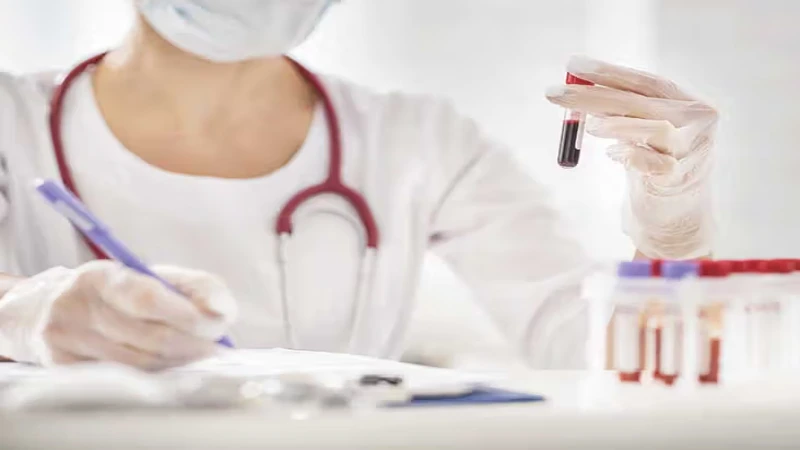Have you ever wondered about the intriguing connection between cancer and a positive ANA result? The Antinuclear Antibodies (ANA) test, a valuable tool in cancer detection, helps healthcare professionals, patients, and caregivers alike in understanding the implications.
By exploring the various types of cancer that cause a positive ANA and the associated symptoms, we can shed light on this complex relationship. Remember, early detection is key in the battle against cancer, so let’s dive into this fascinating topic and unravel its intricacies together!
Must Read: When is Breast Cancer Awareness Day?
Introduction
Before we delve into the specifics, let’s start with a brief explanation of the ANA (Antinuclear Antibody) test. Antinuclear Antibodies are autoantibodies that can attack the body’s own cells, which may lead to the development of various autoimmune conditions, including cancer. These autoantibodies specifically target the nucleus of cells, causing inflammation and damage.
Detecting the presence of a positive ANA can serve as an indication of an underlying cancer, prompting healthcare professionals to conduct further investigation and diagnostic tests to determine the exact nature and extent of the condition. This early detection and subsequent investigation can potentially aid in timely intervention and treatment planning for individuals at risk.
Now, let’s explore the different types of cancer that can cause a positive ANA and the symptoms associated with each:
1. Breast Cancer
- Symptoms: Breast lumps, changes in breast size or shape, and nipple discharge are important signs to be aware of when it comes to breast health. It is crucial to regularly check for any abnormalities or changes in your breasts, such as the presence of a lump, alterations in size or shape, or any unusual discharge from the nipples. If you notice any of these symptoms, it is recommended to consult with a healthcare professional for further evaluation and guidance. Taking proactive steps in monitoring your breast health can contribute to early detection and improved outcomes.
2. Ovarian Cancer
- Symptoms: Experiencing abdominal bloating, discomfort in the pelvic region, and alterations in bowel habits are common symptoms that can indicate various underlying conditions. These symptoms may include feelings of fullness, tightness, and a sensation of increased pressure in the abdomen. It is important to pay attention to these changes and consult a healthcare professional for a thorough evaluation and appropriate management.
3. Lung Cancer
- Symptoms: Persistent cough, accompanied by a nagging chest pain and a feeling of shortness of breath, can be indicative of various underlying health conditions. It is essential to consult a healthcare professional for a proper diagnosis and appropriate treatment.
4. Colon Cancer
- Symptoms: Some common symptoms to watch out for include changes in bowel habits, such as diarrhea or constipation, the presence of blood in the stool, and abdominal pain. These indicators can be signs of underlying health issues and should be promptly addressed by a medical professional.
5. Prostate Cancer
- Symptoms: Some potential symptoms to be aware of include difficulty urinating, presence of blood in urine or semen, and experiencing erectile dysfunction. If you notice any of these signs, it is important to consult with a healthcare professional for further evaluation and guidance.
6. Leukemia
- Symptoms: Experiencing fatigue, recurrent infections, and unexplained weight loss can be signs of underlying health issues. These symptoms may indicate a weakened immune system or an underlying medical condition that requires further evaluation and attention. It is important to consult with a healthcare professional for a thorough assessment and appropriate management.
7. Lymphoma
- Symptoms: Enlarged lymph nodes, often accompanied by tenderness or swelling, can be a concerning symptom. Night sweats, particularly when they are excessive and disrupt sleep, may also raise alarm. Additionally, unexplained weight loss, when not attributed to changes in diet or lifestyle, could be a sign of an underlying health condition. It is important to consult a healthcare professional for a thorough evaluation and proper diagnosis.
8. Thyroid Cancer
- Symptoms: Some common symptoms of a neck lump include swelling or a mass in the neck area. Hoarseness refers to a change in the voice quality, often characterized by a rough or raspy voice. Difficulty swallowing can manifest as a sensation of food getting stuck or experiencing pain while swallowing. If you are experiencing any of these symptoms, it is important to consult a healthcare professional for further evaluation and appropriate treatment.
Early detection plays a pivotal role in improving treatment outcomes and increasing survival rates. By prioritizing regular check-ups and screenings, we can proactively identify these cancers at their earliest stages when they are most treatable.
It’s important to be aware of the associated symptoms and any concerns you may have and to promptly consult with your healthcare provider if needed. Remember, taking proactive steps toward early detection can significantly impact your overall health and well-being.
Conclusion
Raising awareness about the various types of cancer that can cause a positive ANA (antinuclear antibody) is of utmost importance for early detection and intervention. By gaining a better understanding of the specific symptoms associated with each type, we empower ourselves to proactively take charge of our health.
It is crucial to prioritize regular check-ups and screenings, as these routine examinations play a vital role in maintaining your overall well-being and enabling timely medical interventions if necessary. Remember, knowledge is power when it comes to safeguarding our health!
Let’s stay informed, stay proactive, and work together to detect cancer early, leading to improved outcomes and better lives for those affected. Together, we can make a significant difference in the fight against cancer and bring hope to individuals and families worldwide.

